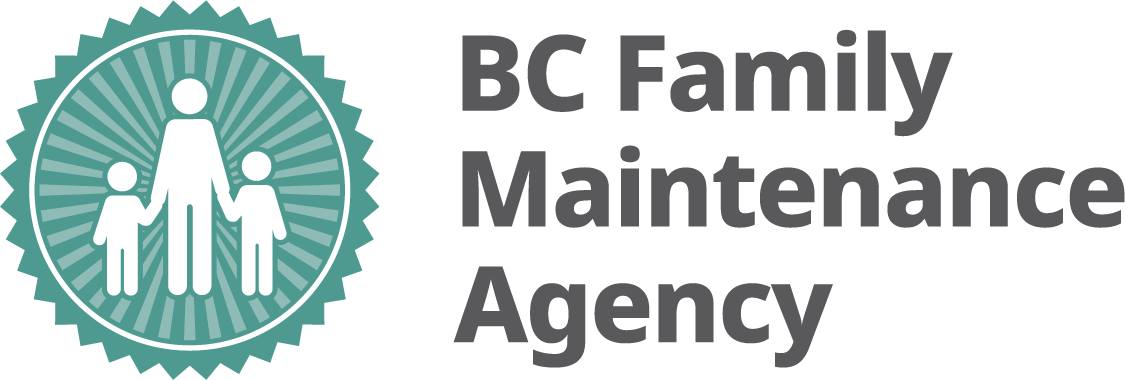Attachments & Liens
Notice of Attachment
A Notice of Attachment (NOA) may be issued if the payor is behind on paying their ongoing support and/or arrears. A Notice of Attachment, sometimes called a garnishment, requires anyone who owes the payor money to pay all or a portion of that money to BCFMA.
We can attach income from one or more sources, including:
- Wages, salaries and/or commissions
- Pensions and Workers’ Compensation Benefits
- Long or Short-term disability payments
- Rental income
- Bank accounts
- ICBC claims
An attachee is required by law to respond to the NOA and send payments to BCFMA for the recipient. The NOA can remain in place for 5 years and may be renewed if the payor is still behind in their support payments.
When would BCFMA take this step?
We may consider a Notice of Attachment if a payor:
- Falls behind on their scheduled payments
- Cannot reach a voluntary payment arrangement with us
- Does not reply to our contact attempts
Before taking this action, we will:
- Inform the payor that they are behind on payments and that a Notice of Attachment is being considered to recover the support
- Work with the payor to develop a voluntary payment arrangement
Review Notice of Attachment
A payor can ask us to review the NOA if they believe their account was not in arrears when the action was taken.
Federal Interception
A federal interception is a recovery action that directs federal money owed to the payor through BCFMA to the recipient to pay for ongoing support and/or arrears. Federal government funds include:
- Employment Insurance (EI) benefits
- Canada Pension Plan or Old Age Security payments
- GST credits
- Income tax refunds
- Benefits from some federal programs
The interception can stay in place for 5 years, or until the BCFMA case is closed. If the payor still owes arrears after 5 years, we may renew the interception.
When would BCFMA take this step?
We may consider a federal interception if a payor:
- Falls behind on their scheduled payments
- Cannot reach a voluntary payment arrangement with us
- Does not reply to our contact attempts
Before taking this action, we will:
- Inform the payor that they are behind on payments and that a federal interception is being considered to recover the support
- Work with the payor to develop a voluntary payment arrangement
Federal interception: quick facts
- The amount of money we can intercept depends on the payment source, for example, we can intercept 25% of EI benefits and 100% of a tax refund
- The remaining income owed to the payor by the federal government may be delayed due to the extra work involved at the federal level
- The federal government may charge the payor an administrative fee to help cover the cost of processing the interception
- It may take 6-8 weeks for us to receive intercepted funds
Review of federal interception
A payor can ask us to review the federal interception if they believe their account was not in arrears when the action was implemented.
Maintenance Lien
We can register a maintenance lien against the payor’s personal property such as a motor vehicle, boat, trailer or manufactured home.
Registering a lien doesn’t mean we physically remove any personal property. If the personal property is being sold or transferred to someone else, BCFMA must be contacted about removing the lien.
The lien stays in place as long as the support order or agreement is enrolled with BCFMA, or until:
- the arrears are paid, or
- the property is sold and the arrears are paid out of the proceeds of the sale.
Land Registration
In a land registration, BCFMA registers a lien against land owned by the payor to secure amounts due under the support order or agreement, including any future payments.
A land registration does not mean the payor needs to sell or move out of their home. Rather, it means the payor cannot sell, refinance or transfer ownership without our consent. If the property sells and the payor has equity, some or all of the proceeds may be directed to BCFMA before we discharge the lien.
When would BCFMA take this step?
We may file a land registration if:
The payor falls behind on their support payments
- Payments are up to date, and we determine it is necessary to secure future payments
- The land registration can remain in place as long as the support order or agreement is enrolled with BCFMA, or until the land is sold.
Land registration: quick facts
- We enact the land registration through the Land Title & Survey Authority of British Columbia (LTSA)
- When a land title search is done, notaries, lawyers and financial institutions may be informed that the land registration is in place
- By law, we must give the recipient notice of the land discharge or postponement, this may take some time
- A payor in arrears may be charged a $150 fee, payable to the government, when we discharge the land registration
Review of land registration
A payor can ask us to review their land registration if they believe it was made in error or if they wish to dispute the circumstances around it. The payor can also challenge the land registration in provincial court.
